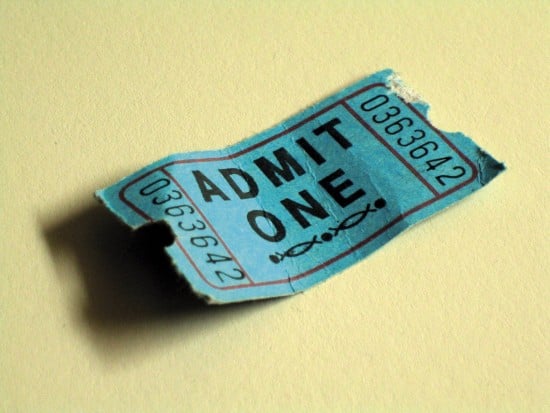I was at a banquet years ago that focused on celebrating the progress made by a consortium of ministers and churches to combat hunger in the community.
I was having a delightful conversation with a pastor seated next to me, Rev. Goodson.
The organizer of evening stood up and prayed over our meal and then said, “We are all looking forward to the keynote address by Rev. Goodson following our meal together.”
Rev. Goodson’s mouth dropped open, but he quickly recovered himself, got out a pen and began scribbling on the paper napkin. Following our dinner, he went to the podium and offered an inspiring, rhetorically well crafted, engaging half hour keynote address.
As we were leaving he said to me, “I don’t where the keynote thing came from. They asked me to offer a 3-5 minute welcome and description of my ministry.
They do say every preacher should be ready, at the drop of a hat, to preach or pray. Rev. Goodson showed himself to be a consummate professional. Still, his experience is the stuff of my own recurring nightmares. Only it doesn’t always turn out that well.
Sometimes, I dream I’m in the right place with the wrong sermon, or that I can’t find the right passage in the Bible and thumb through it while everyone fidgets, or that I’m driving to the church and make a wrong turn or…. You get the idea.
Last night, though, I dreamed that I was sitting in church and someone announced that they were all excited to hear their guest preacher’s (me) sermon following the anthem.
And, this is the strange part. This is something that has never happened to me before and probably will never happen to me again. The dream included my composing the sermon in my head as I slept. And when I woke up, I remembered it. So if it doesn’t make sense to you, blame my subconscious mind- I can hardly be blamed for what it comes up with!
The sermon was called “The Journey from Heart to Hands”
Is a faithful life a matter of the heart (the inward person) or a matter of the hands (the outward behavior of a person)?
There are biblical passages that would vote for heart. The heart is where it all starts, the heart, understood as the seat of character, both emotions, and decision-making wisdom. King David, having sinned with his hands and other body parts as well, prays “Create in me a clean heart, O God, and put a new and right spirit within me.” (Psalm 51:10) He realizes that, if he is to avoid misbehavior in the future, his self-discipline will have to come from the heart.
Jesus says “Where your treasure is, there will your heart be also.” (Mt 6:21) He adds that “From the heart comes evil intentions, murder, adultery, fornication, theft, false witness, slander. These are what defile a person, but to eat with unwashed hands does not defile.” (Mt 15:19)
So the faithful life begins with the heart, the inward person.
But it doesn’t end there. Good intentions are clearly not enough. The Sermon on the Mount in Matthew ends with these words of Jesus: “Not everyone who says to me ‘Lord, Lord,’ will enter into the kingdom of heaven, but only the one who does the will of my Father in heaven.” (Mt 7:21) Paul tells us that we are “the body of Christ, and individually members of it.” (1 Corinthians 12:27) Jesus reminds us that the purity of our hearts will play out in the quality of our actions. We will be known by our fruits. “A good tree cannot bear bad fruit, nor can a bad tree bear good fruit.” (Mt 7:18-19) The practical book of James instructs us, “Who is wise and understanding among you? By his good conduct let him show his works in the meekness of wisdom. (James 3:13)
One of my favorite lines from a hymn is “Dear Master in Whose Life I See, all that I am but fail to be. Help me, oppressed by things undone, o Thou whose words and deeds were one.”
You will no doubt have had this thought by now as I have been speaking: “Preacher, we all know that it is not either or – inward heart or outward hands and feet. It is both. Our real issue is that so often we have good intentions that don’t get activated in the real world. And at other times we find ourselves behaving in ways that are at odds with what we believe in our innermost hearts.”
I picture our lives of faith as journeying on a train, a journey from heart to hands. If we can keep before us the purpose and destination of our journey, to pour ourselves out in loving God and loving our neighbors “our intentions and our deeds can come to serve a common, godly purpose.
I am reminded of a famous story about the brilliant physicist Albert Einstein who, for many years lived in Princeton, N.J. where he was a beloved and well-known figure. The story goes that he
was once traveling from Princeton on a train when the conductor
came down the aisle, punching the tickets of every passenger. When he
came to Einstein, Einstein reached in his vest pocket. He couldn’t find
his ticket, so he reached in his trouser pockets. It wasn’t there, so he
looked in his briefcase but couldn’t find it. Then he looked in the seat
beside him. He still couldn’t find it.
The conductor said, “Dr. Einstein, I know who you are. We all know who you
are. I’m sure you bought a ticket. Don’t worry about it.”
Einstein nodded appreciatively. The conductor continued down the aisle
punching tickets. As he was ready to move to the next car, he turned
around and saw the great physicist down on his hands and knees looking
under his seat for his ticket.
The conductor rushed back and said, “Dr. Einstein, Dr. Einstein, don’t
worry, I know who you are. No problem. You don’t need a ticket. I’m sure
you bought one.”
Einstein looked at him and said, “Young man, I too, know who I am. What I
don’t know is where I’m going.”
In this season of Lent, we do well to remember that we are all together on a journey from heart to hands. The track between them is paved by the steadfast love of God for us all.












